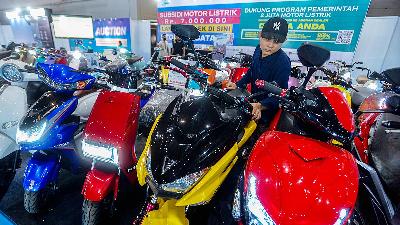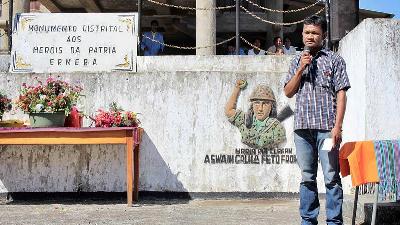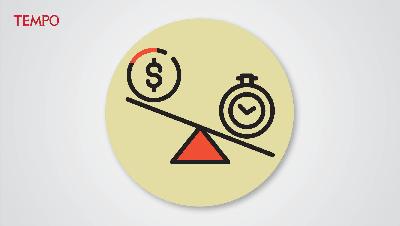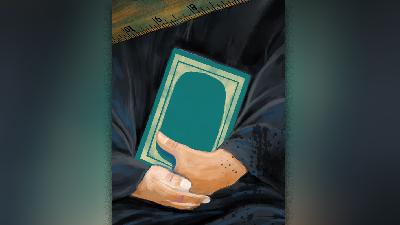Moving Together to Support the Closed-Loop Circular Economy
Monday, July 10, 2023
The recycling process of used Coca-Cola plastic bottles at Amandina Bumi Nusantara gets community support.
arsip tempo : 174499479615.
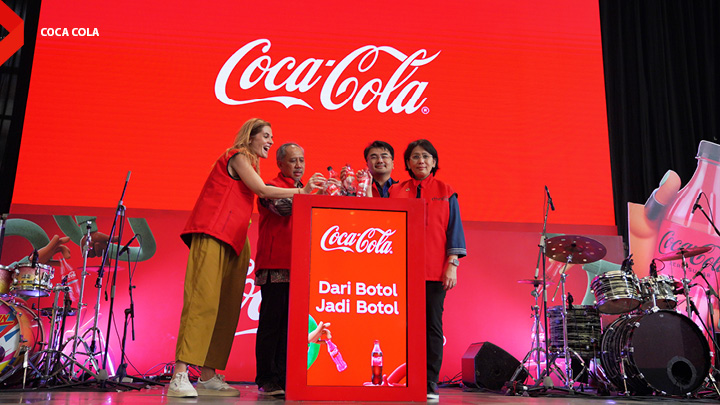
Implementing a circular economy in Indonesia is not an easy task. Although the term is often heard, not everyone understands the concept and its implementation. Moreover, making it a habit in their daily lives is difficult.
Ecoxyztem's Chief Commercial Officer (CCO), Andreas Pandu Wirawan explained that the circular economy is actually divided into two, open loop and closed-loop. In the open loop, when a product becomes waste, there is a possibility that it can be used in another form, but it does not last long so it is eventually discarded.
While the closed-loop allows the product to be recycled so that it can be turned back into something valuable. The used packaging will be broken down, melted down and then shaped into one of the same products. This process continues through a closed-loop or repetition, which will ultimately help reduce contaminated packaging waste.
"Maybe because there's little awareness in the community, waste such as used packaging is still plentiful and everywhere," he said as a guest speaker at a talk show entitled "#JagaIndonesia: Creating a Post-Consumption Packaging Management Ecosystem to Drive Social Impact" initiated by Coca-Cola Indonesia at Gandaria City, Jakarta, Saturday, June 17, 2023.
Pandu said that closed-loop is the best type of circular economy. The key to achive it is through collaboration of all parties. Nara Synergy's Managing Director and Co-Founder, Angelina Callista, agreed 100% on the theory. "With the combined forces of all parties, we will realize that the impact will be greater," Angelina said.
Nara Synergy, an organization led by Angelina, focuses on community empowerment, particularly in terms of environment. Indeed, many communities are engaged in similar sectors. The challenge, said Angelina, is to unite the mission of all existing communities.
But Pandu has a different challenge. As one of the very few startups in the environmental field, Ecoxyztem needs capital. Business sustainability becomes a problem in establishing cooperation.
On the other hand, Ahmad Zakky Habibie, Executive Director of Ancora Foundation - a non-profit foundation in the education sector - said that the challenge is to educate people according to their level of education so that they understand. "Explaining the circular economy to elementary school children is certainly different from junior high school, high school, and university students. The higher the level, the more complex the discussion," he said.
Coca-Cola Indonesia and Coca-Cola Europacific Partners Indonesia are addressing the challenges of implementing a closed-loop circular economy. In February, they inaugurated the rPET or recycled PET recycling plant, Amandina Bumi Nusantara, which was established in partnership between Coca-Cola Europacific Partners Indonesia and Dynapack Asia. Currently, Amandina is capable of producing 25,000 tons of recycled PET per year.
Its factory, located in Cikarang, enables the "From Bottle to Bottle'' process. This means that used plastic packaging from Coca-Cola product bottles is reprocessed into new bottles. Coca-Cola Indonesia has launched the new bottle made from 100% recycled PET plastic (rPET) for Coca-Cola Trademark, Fanta, Sprite in 390ml packaging, and Sprite Waterlymon in 425ml packaging last Friday, June 16, 2023.
The recycling process involves Coca-Cola's subsidiary, Mahija Parahita Nusantara, a non-profit social foundation tasked with collecting Coca-Cola, Sprite, and Fanta bottle waste. To collect these bottles, Mahija empowers scavengers or recycling heroes.
The involvement of these recycling heroes, according to the Vice Chairman of the Mahija Parahita Nusantara Foundation, Suharji Gasali, is because the company realizes that the circular economy has economic value. "This business (used packaging waste) actually has quite a big opportunity. Now what needs to be done is to make it sustainable," he said.
The presence of the Amandina Bumi Nusantara recycling plant in collaboration with the Mahija Parahita Nusantara Foundation and the presence of recycled packaging bottles (rPET) is an implementation of a closed-loop circular economy, which converts waste into new products, bottle to bottle. "Therefore, we are now opening up wider collaboration," said Suharji.
Zakky, Pandu, and Angelina were delighted with the offer. Pandu said he's ready to work with Mahija to be involved in the supply chain so that the collection could be more extensive and practical.
Meanwhile, Zakky said that Coca-Cola's innovation made it easier for him to educate students at every level. "Ancora learned a lot from Coca-Cola. We learned about the implementation of a closed-loop circular economy through this Coca-Cola rPET bottle. From there we spread this knowledge that circular economy is not just words, but must be supported by real action."




